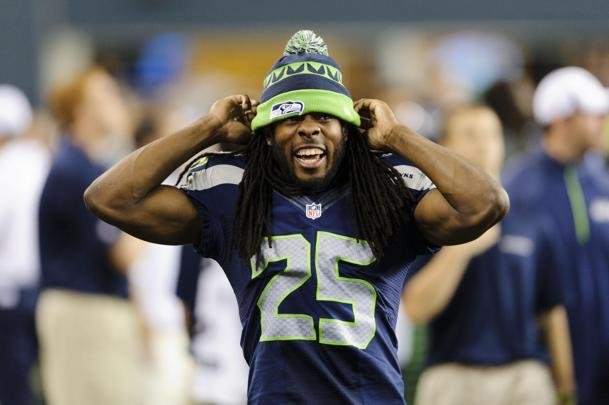The television ratings for this year’s Stanley Cup playoffs have been steady despite many top markets not having teams qualify and finalists from the past two years eliminated in the first round.
Going into the start of Monday’s final between the St. Louis Blues and Boston Bruins, television ratings for all games across NBC Sports Group are slightly down from last year but up 4% from 2017. An average of 1.174 million viewers have tuned in per game, which is fifth most since 1994.
Cable ratings are up 4%, with an average of 1.004 million viewers, which is the third highest since 1996.
The second round, which had two seven-game series in the West, was the most watched on record, averaging 1.621 million viewers on NBC’s broadcast and digital platforms according to Nielsen, NBC and Adobe Analytics. All but Boston and New York set local ratings records of the teams that were still competing in the conference semifinals.
The television numbers were at record numbers through the first two rounds, but took a hit because the Eastern Conference finals between Boston and Carolina went only four games. Due to the Bruins sweep, there wasn’t a Game 5 that aired after the Preakness Stakes.
”With the absence of larger media markets, we are still doing record numbers or close to it. That is the point that makes it even more significant,” NHL commissioner Gary Bettman said in a phone interview with The Associated Press.
”The quality of play and unpredictability of the playoffs have made them entertaining. That has drawn fans to continue to be engaged.”
Buffalo, which has traditionally been a strong hockey TV market, was the top-ranked market through the first two rounds despite the Sabres not making the postseason for the eighth straight season. Pittsburgh was seventh even though the Penguins were swept in the first round and Minneapolis-St. Paul eighth with the Wild not qualifying for the first time since 2012.
This year’s playoff field also didn’t include large markets, including teams that have recently won multiple Cups, such as Chicago, Philadelphia, Detroit and Los Angeles.
Sam Flood, NBC’s executive producer for hockey, credits Jenny Storms and the network’s marketing department for keeping interest in the playoffs in those markets despite not having their teams qualify by aggressively targeting those areas for the first time, which is something they did in tandem with the league.
”We were making sure that they were up to date on the hockey story and being driven to tune into our shows,” Flood said. ”We think that the tide is being turned and even when your team’s eliminated people are now excited to watch hockey, a big part of that is the product on the ice.”
The approach is similar to what the NBA has done for many seasons in taking a more national focus with promotion. While all NBA playoff games have been accessible through TNT, ESPN/ABC and NBA TV since 2003, that has only existed in the Stanley Cup playoffs since 2012.
The playoff numbers have continued from gains made during the regular season, when the overall ratings increased 2% over last season.
What has Bettman encouraged about the future, though, is the streaming numbers, especially when it comes to drawing in millennials and Gen Z fans. There have been 345 million live minutes streamed to date, which is up 47% from last year. An average of 36,300 are viewing on NBCSports.com and NBC’s Sports app, which is an increase of 38% from last year.
The NHL’s agreement with BAMTech and Disney Streaming Services uses the same technology as Major League Baseball for its online properties. The league also has one game shown for free each night during the regular season on the ESPN+ streaming service.
”Both we and NBC are doing more storytelling than ever before. Those stories are compelling especially among millennials and Gen Z and it is resonating on all our platforms,” Bettman said.
Former CBS Sports president Neal Pilson, who runs a sports media consulting company, noted that hockey has always had its core audience, but that the tradition of the Stanley Cup playoffs is something that is unique compared to other sports.
”Hockey is a secure major sport in the U.S.,” he said. ”The league should be happy and encouraged with the ratings, especially if the finals can go five games or longer since the ratings usually increase.”
Flood and Bettman see a lot of upside with the final matchup. St. Louis has produced great local numbers over the past two rounds while Boston has regional interest throughout New England along with national recognition as an Original Six franchise.
”The more kind of crazy the playoffs get, the more interest is driven, and that’s really exciting,” NHL Network coordinating producer Josh Bernstein said. ”There’s so many great story lines going on right now, and I feel like it really piques everybody’s interest. It’s great for the game and the ratings show that.”
—
More AP NHL: https://apnews.com/NHL and https://twitter.com/AP-Sports
25% Bonus via Western Union























